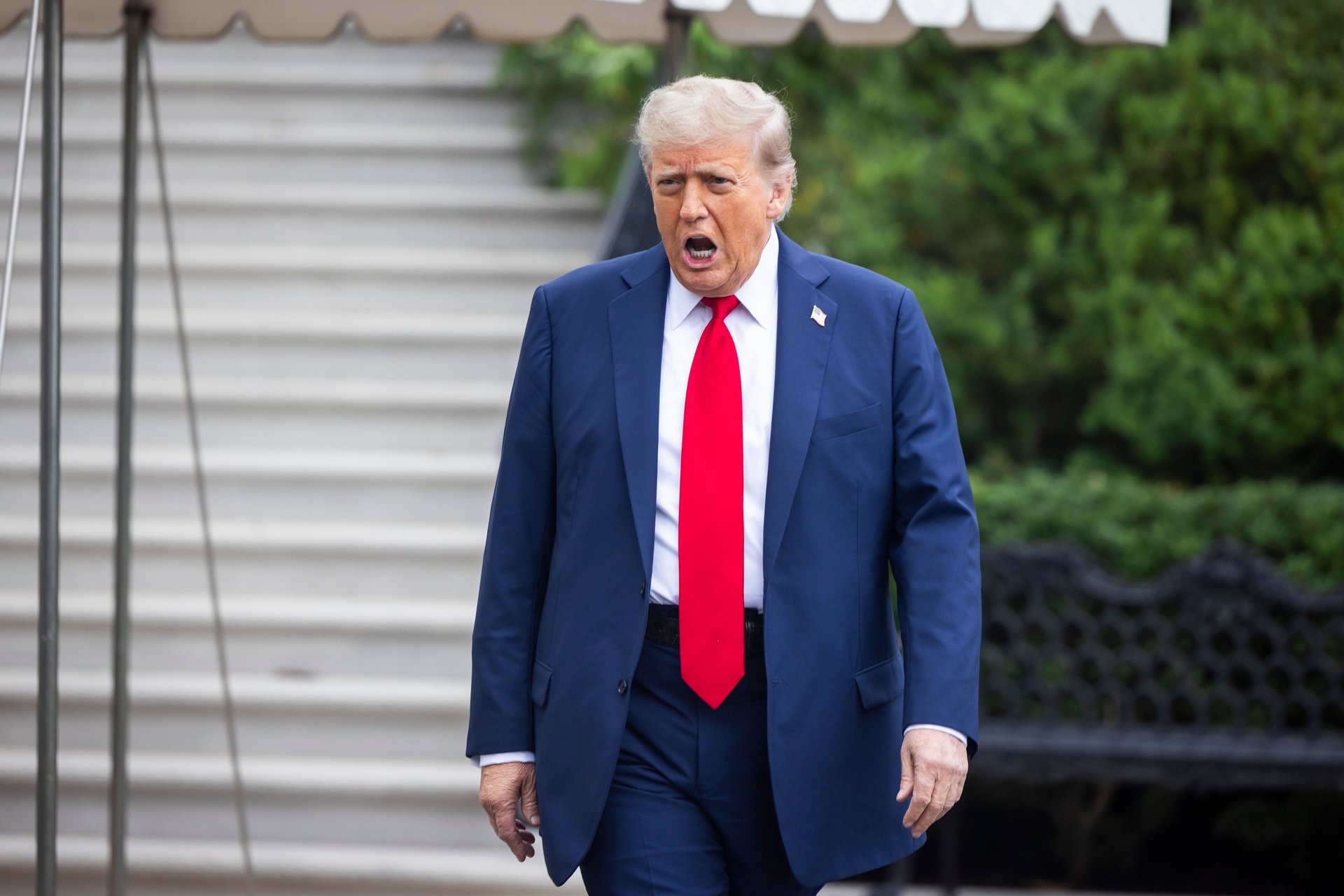The Dow surges soars 500 points and oil falls on ceasefire hopes. But Trump says the quiet part loud
Markets rise on hopes for an Israel-Iran ceasefire, even as Trump blurts out that neither country "knows what the f—k they're doing"

Jim Lo Scalzo/EPA/Bloomberg via Getty Images
U.S. stocks rose sharply Tuesday, seemingly buoyed by reports of a potential ceasefire between Israel and Iran — never mind that the entire sequence increasingly resembles a geopolitical photo-op, with each side claiming a "win."
Suggested Reading
The Nasdaq rose 1.5% in afternoon trading, while the S&P 500 climbed 1.1% and the Dow Jones Industrial Average gained 515 points, or 1.2%.
Related Content
Oil prices, which had climbed amid fears of a wider regional war, reversed sharply, falling more than 5% after President Donald Trump said on Truth Social that China "can now continue to purchase Oil from Iran." The VIX, a measure of volatility and fear, dropped more than 11%.
Conflict and ceasefire
Following a 12-day conflict that saw Israeli strikes on Iranian nuclear sites, Iran returning fire, and finally the U.S. entering the fray over the weekend by joining the Israeli bombing campaign, Trump declared a halt to hostilities late Monday. Headlines touted a Trump-brokered end to the conflict.
Now, hours later, Trump has taken to Truth Social to scold Israel for allegedly violating the alleged truce. Israel claims Iran broke it first with new missile launches, which Iran denies. That the action continues should inspire skepticism about the longevity of any deal or period of peace. Trump, early Tuesday morning, gave a quote to TV cameras, appearing to throw up his hands: “You have two countries who have been fighting for so long and so hard that they don’t know what the f—k they’re doing.”
While the markets may be clinging to ceasefire headlines, Trump’s own quote makes it painfully clear: No one’s in control here, and everyone’s improvising. Even the much-vaunted accomplishments of the Israeli-U.S. bombing campaign are in question.
Powell tells Congress the Fed can sit tight on interest rates
Federal Reserve Chair Jerome Powell told lawmakers Tuesday that the central bank is able to sit tight and measure the impact of Trump's tariffs on the economy before cutting interest rates.
In prepared remarks to the House Financial Services Committee, Powell cited indicators that reflect a strong American economy. He pointed to a 4.2% unemployment rate and job gains averaging 124,000 per month in the first five months of the year. Wage growth continues outpacing inflation, and Powell believes the labor market is balanced with maximum employment.
"For the time being, we are well positioned to wait to learn more about the likely course of the economy before considering any adjustments to our policy stance," Powell said. His appearance kicked off two days of testimony before Congress, with Powell speaking to lawmakers on the Senate Banking Committee on Wednesday.
Fed Governors Michelle Bowman and Chris Waller have floated the possibility of cuts as soon as July, but the latest dot plot showed seven officials forecasting no cuts at all in 2025, up from just four in March. Atlanta Fed President Raphael Bostic, for his part, sees only one cut this year — and not until late 2025.
The big picture: Powell’s strategy of patience is holding, even as Trump’s demands grow even louder. Until there’s more clarity on the actual price effects of tariffs, Powell appears willing to take the heat — again.
An unprecedented budgetary maneuver
Bloomberg reports that Senate Republicans are pushing an unprecedented budgetary maneuver to make Trump’s 2017 tax cuts permanent without acknowledging their true cost — $3.8 trillion over a decade — by assuming the cuts would’ve continued anyway.
The trick? Redefining “baseline” projections to make a massive revenue loss look like fiscal neutrality. Critics warn this would upend decades of budget discipline and green-light future deficit-financed giveaways. Even conservative analysts admit the move would barely boost long-run growth and do nothing to address the ballooning national debt.
Turns out, when the economy’s teetering and the Fed won’t budge, a little overseas drama makes for great counter-programming.
—Joseph Zeballos-Roig contributed to this article.
